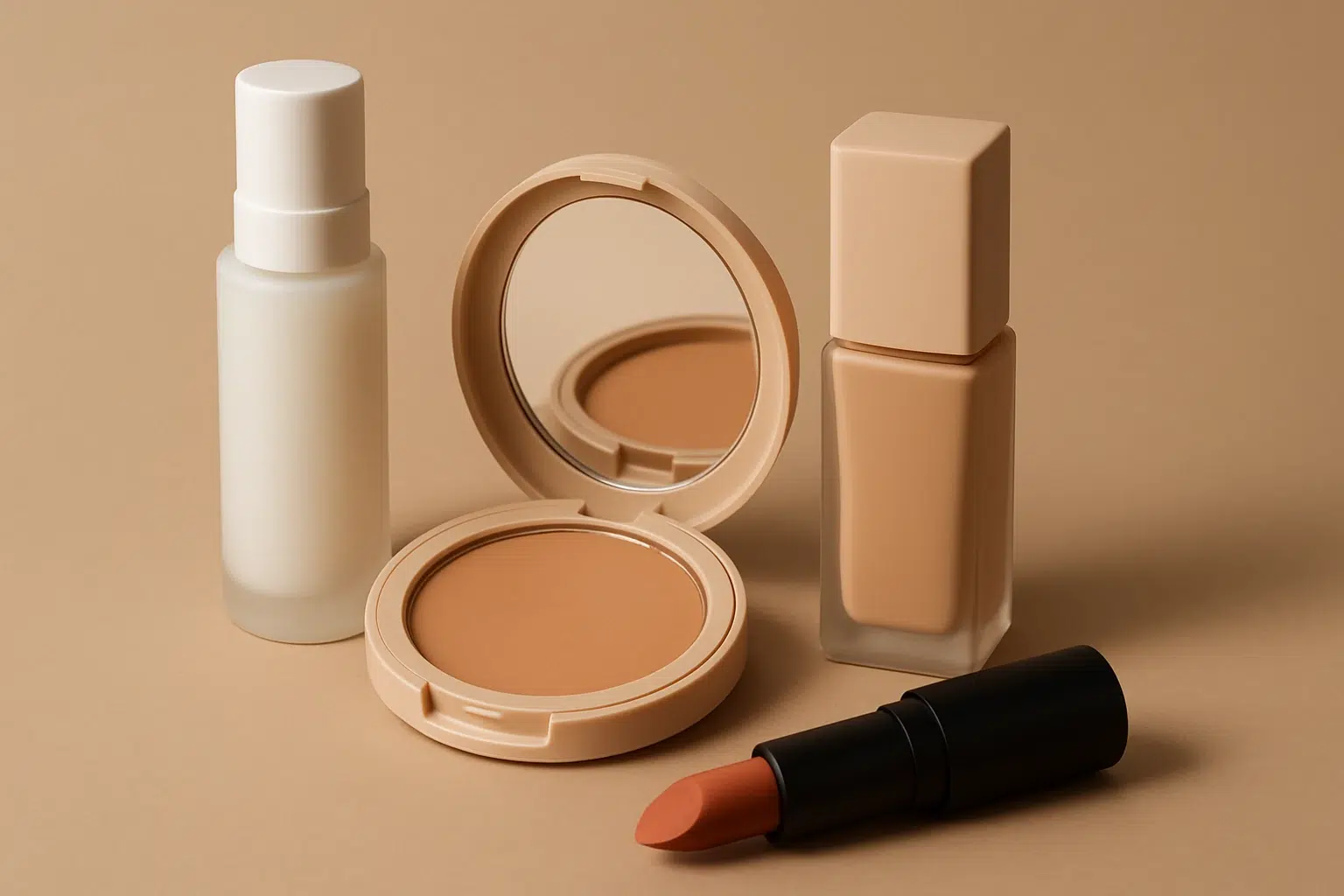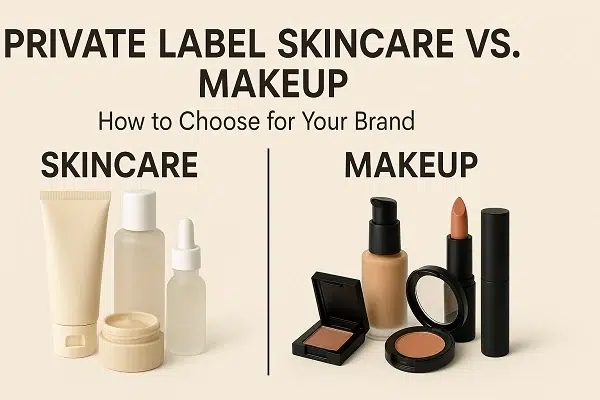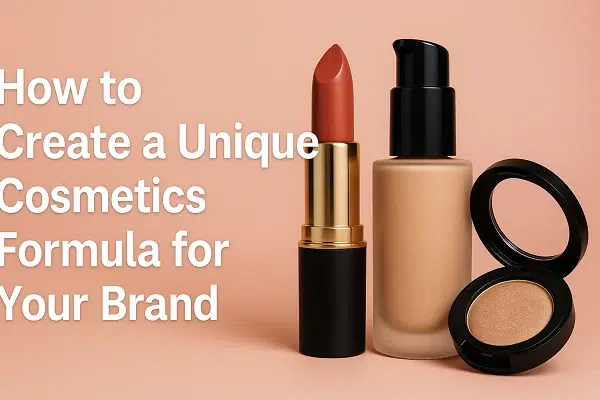The beauty industry’s B2B sector involves wholesale distribution of beauty products to businesses, not individual consumers. Growing demand for tailored beauty products prompts a shift towards customized wholesale offerings in the beauty market.
Private label makeup transforms B2B beauty by offering customizable solutions tailored to wholesale clients’ needs and preferences.
Table of Contents
Wholesale Customization in B2B Beauty
Wholesale customization in the B2B (business-to-business) beauty sector refers to the practice of offering personalized or tailored products, services, or solutions to retailers, distributors, or other businesses within the beauty industry on a bulk or wholesale level.
This customization can encompass various aspects, including product formulation, packaging, branding, or services, tailored to meet the specific needs, preferences, or requirements of the business client.
Significance of Wholesale Customization in the B2B Beauty Sector:
Meeting Diverse Business Needs: Beauty retailers and distributors often have unique market demands or consumer preferences. Customization allows wholesalers to cater to these specific requirements, offering tailored solutions that align with the retailer’s niche, target audience, or brand positioning.
Brand Differentiation and Exclusivity: Wholesale customization enables businesses to create exclusive products or lines for their clients, helping these clients stand out in a competitive market. This exclusivity can foster stronger relationships between wholesalers and their clients.
Flexible Product Offerings: Beauty businesses can adapt their products or services to suit different market segments, geographical regions, or emerging trends. Customization allows for flexibility in adjusting formulations, packaging sizes, or branding elements according to market preferences.
Enhanced Collaboration and Partnerships: Offering customizable solutions fosters a collaborative approach between wholesalers and their B2B clients. By involving clients in the customization process, it strengthens relationships, builds trust, and leads to more strategic partnerships.
Improved Customer Satisfaction: Tailoring products or services to meet specific retailer or distributor requirements can lead to increased satisfaction. This can result in long-term partnerships, repeat business, and positive word-of-mouth referrals within the industry.
Innovation and Adaptation: The beauty industry is constantly evolving, with new trends, ingredients, and consumer demands. Wholesale customization allows businesses to innovate and adapt swiftly, staying ahead of market changes.
Competitive Advantage: Companies that offer wholesale customization can gain a competitive edge by providing unique, specialized offerings that might not be easily replicated by competitors. This can contribute to market positioning and differentiation.
Wholesale customization in the B2B beauty sector holds significant importance as it allows businesses to tailor their products, services, or solutions to the specific needs of their clients. This practice fosters stronger relationships, drives innovation, and helps businesses stay competitive in a dynamic industry.
Private Label Makeup: The Game-Changer
Private label makeup refers to products manufactured by one company (the manufacturer or supplier) and sold under the brand name of another company (the retailer, distributor, or client). In the context of the beauty industry and wholesale customization, private label cosmetics play a pivotal role in offering tailored solutions for B2B clients.
Role of Private Label Makeup in Wholesale Customization for B2B Clients:
Customized Branding: B2B clients in the beauty industry often seek unique branding and personalized packaging for their products. Private label cosmetics enable these clients to create their own brand identity, including logos, packaging designs, and labeling, tailored to their specific target market or consumer preferences.
Product Customization: Private label cosmetics offer B2B clients the flexibility to customize various aspects of the products, such as formulations, colors, textures, and ingredients. This customization allows businesses to align with the latest trends, meet specific customer demands, or cater to niche markets.
Exclusive Offerings: B2B clients can differentiate themselves in the market by offering exclusive makeup products that are not readily available from other competitors. Private label cosmetics allow these clients to provide unique formulations or product lines, enhancing their brand’s exclusivity.
Faster Time-to-Market: Private label manufacturing often involves ready-to-sell products that can significantly reduce the time and resources required for product development. This agility enables B2B clients to swiftly introduce new products or respond to emerging trends in the beauty industry.
Advantages of Private Label Makeup for B2B
Absolutely, private label makeup offers several advantages for B2B relationships within the beauty industry:
Flexibility and Adaptability: Private label cosmetics allow manufacturers and suppliers to adapt quickly to the diverse needs and preferences of wholesale clients. This flexibility extends to product formulations, packaging designs, and branding, enabling businesses to cater to specific market segments or respond swiftly to changing trends.
Cost-effectiveness and Scalability: Private label manufacturing often involves ready-made formulas or standardized processes, which can significantly reduce product development costs and time. This cost-effectiveness and scalability make it easier for B2B clients to access high-quality cosmetics at competitive prices, facilitating larger production volumes and potential cost savings.
Customization and Differentiation: Customization is a crucial factor that gives B2B clients a competitive edge in the beauty industry. Private label cosmetics enable businesses to differentiate themselves by offering unique, tailored products that stand out from generic or mass-produced alternatives. This exclusivity can enhance brand loyalty and attract discerning consumers seeking specialized beauty products.
Brand Control and Exclusivity: For B2B clients, private label makeup offers greater control over branding and product offerings. They can create their distinct identity, maintain control over pricing strategies, and establish exclusivity in the market, fostering stronger relationships with their customer base.
Speed to Market: Private label manufacturing’s streamlined processes and readily available product options allow for faster time-to-market. B2B clients can swiftly introduce new products, respond to emerging trends, or capitalize on seasonal demands without lengthy development cycles, giving them a competitive advantage in the industry.
Profit Margins and Marginal Gain: Private label cosmetics often offer more favorable profit margins for B2B clients compared to selling third-party branded products. While the initial investment might be higher, the potential for increased margins over time makes it an attractive proposition for businesses.
Long-term Partnerships: Through private label cosmetics, B2B relationships can evolve into long-term partnerships. As clients find success with customized products, they tend to develop stronger ties with manufacturers or suppliers, leading to ongoing collaborations and mutual growth.
Steps to Implement Private Label Makeup for Wholesale Clients
Market Research and Client Analysis: Understand the needs, preferences, and target markets of potential wholesale clients. Conduct thorough market research to identify gaps or opportunities where customized cosmetics can meet specific demands.
Identify a Reliable Manufacturer or Supplier: Choose a reputable private label manufacturer or supplier with a track record of producing high-quality cosmetics. Evaluate their capabilities, product range, customization options, and compliance with industry standards and regulations.
Customization Options and Product Development: Collaborate closely with the chosen manufacturer to develop customized makeup products. Define the specifications, including formulations, packaging, labeling, and branding, ensuring they align with the wholesale client’s requirements and brand identity.
Quality Control and Testing: Prioritize quality control measures and product testing to ensure that the private label cosmetics meet industry standards and client expectations. Conduct thorough testing for safety, efficacy, and stability of the products.
Create a Strong Brand Identity: Work with the wholesale clients to create a compelling brand identity for the private label cosmetics. This includes designing unique packaging, labels, and marketing materials that resonate with the target audience.
Offer Comprehensive Support and Services: Provide support throughout the process, including assistance with regulatory compliance, marketing strategies, and distribution logistics. Offering comprehensive services can strengthen the partnership with wholesale clients.
Launch and Promotion: Plan an effective launch strategy for the private label cosmetics, leveraging various marketing channels to reach the target audience. Highlight the uniqueness and benefits of the customized products to attract attention and generate interest.
Strategies for Successful Integration of Private Label Cosmetics into Wholesale Offerings:
Tailored Solutions: Emphasize the ability to offer tailored solutions that cater to the specific needs and preferences of wholesale clients, showcasing the flexibility and customization options available.
Educational Resources: Provide educational resources or training sessions for clients to understand the benefits and customization possibilities of private label cosmetics, empowering them to make informed decisions.
Transparent Communication: Maintain open and transparent communication with wholesale clients throughout the process, addressing their concerns, providing updates, and incorporating their feedback.
Tips for Leveraging Customization to Attract and Retain B2B Clients:
Highlight Unique Selling Proposition: Emphasize the unique aspects of the private label cosmetics, showcasing how customization adds value and sets them apart from generic products.
Build Relationships: Foster strong relationships with wholesale clients by actively engaging with them, understanding their needs, and continuously exploring ways to enhance the products or services.
Adaptability and Flexibility: Demonstrate the ability to adapt quickly to changing market trends or client preferences, showcasing the agility and responsiveness of the private label makeup offerings.
Consistent Quality: Ensure consistent quality in products and services, reinforcing reliability and trustworthiness, which are vital for long-term partnerships.
Conclusion
Private label makeup represents more than just a product; it symbolizes a paradigm shift toward a more adaptable, client-focused, and innovative approach within the B2B beauty sector. Its transformative potential lies not only in meeting current demands but in anticipating and exceeding the evolving expectations of both wholesale clients and end consumers.
Embracing this transformative potential can lead to a redefined future where customization reigns supreme in driving the growth and evolution of the B2B beauty industry.







